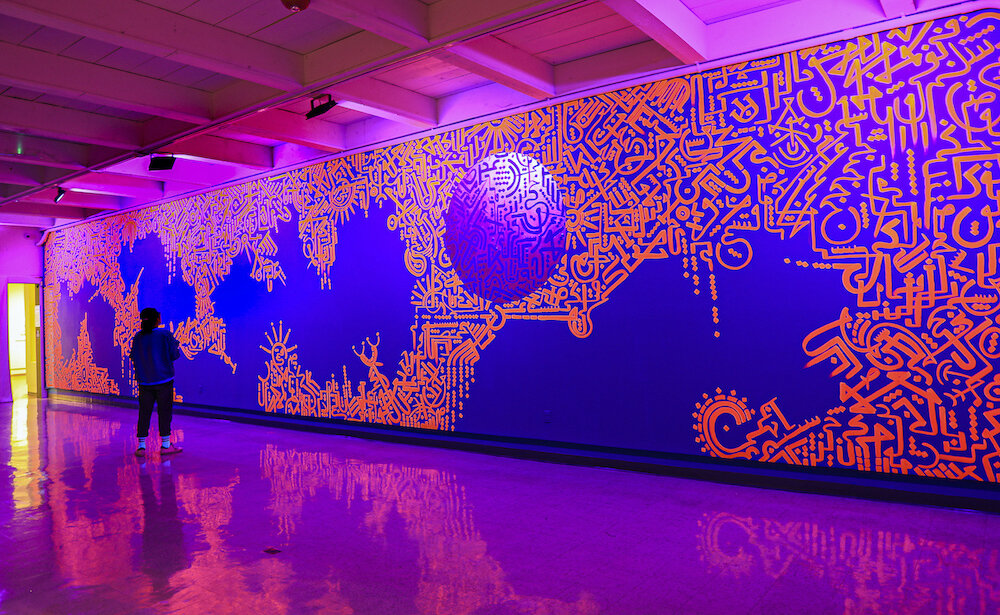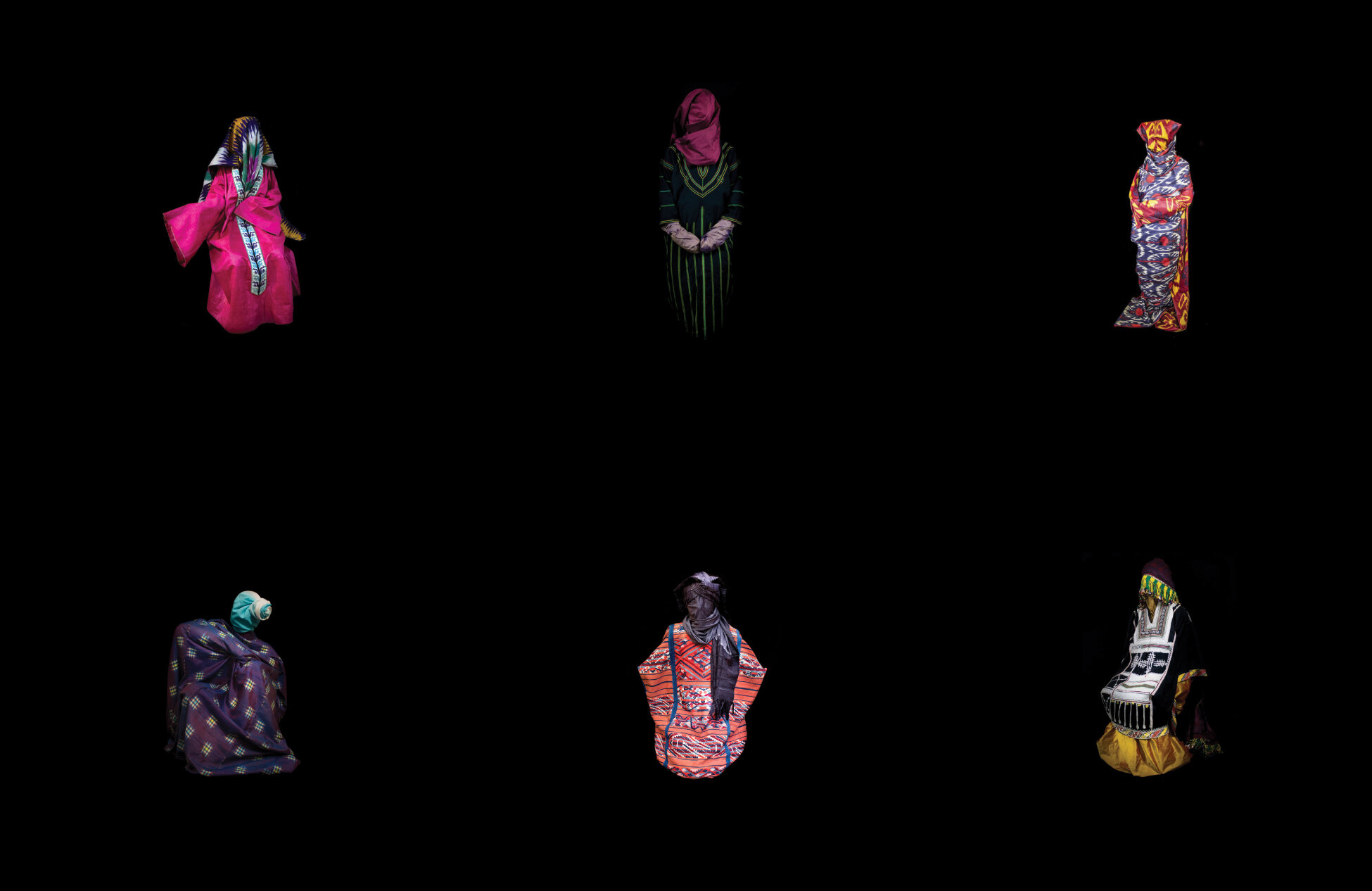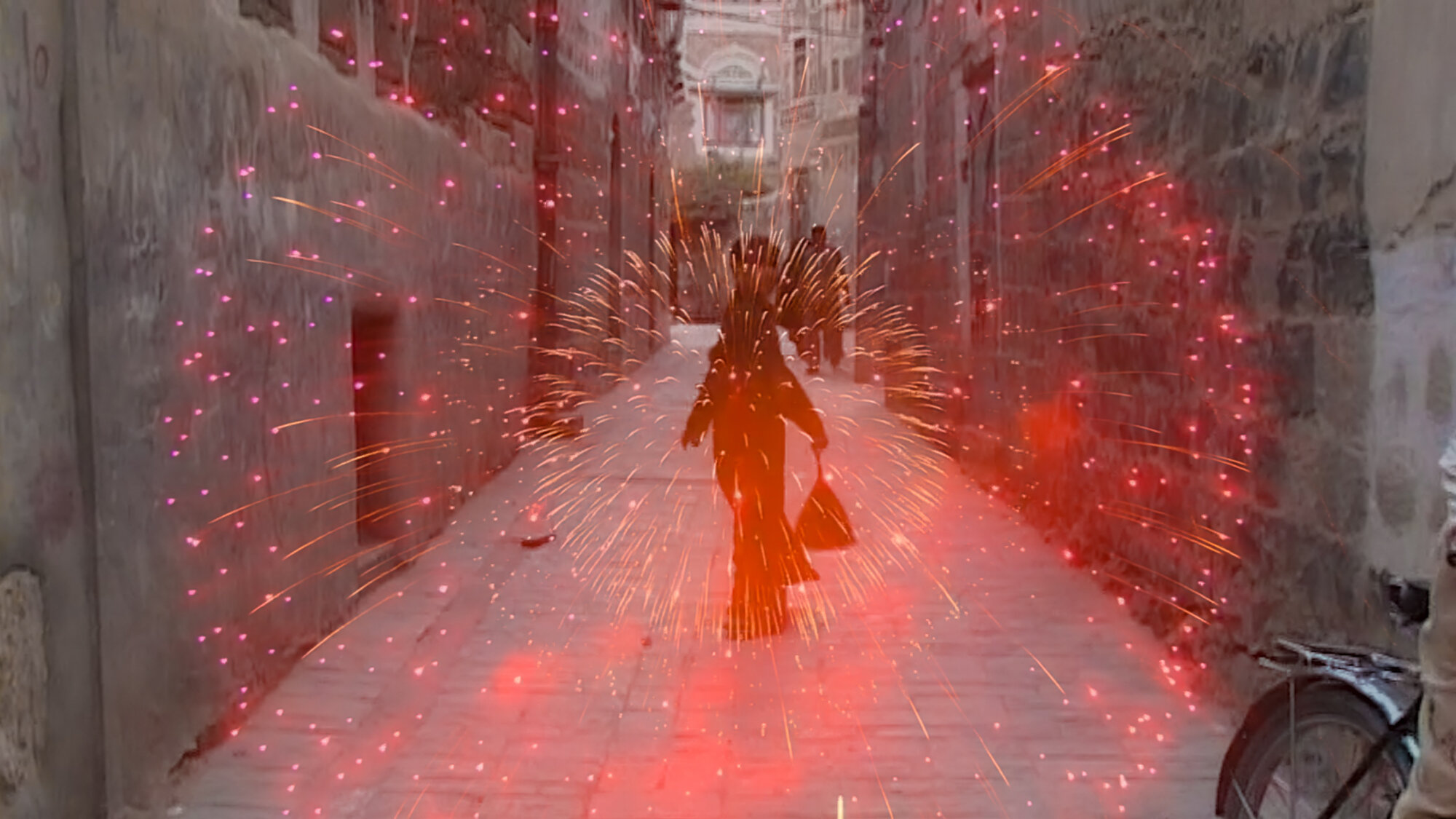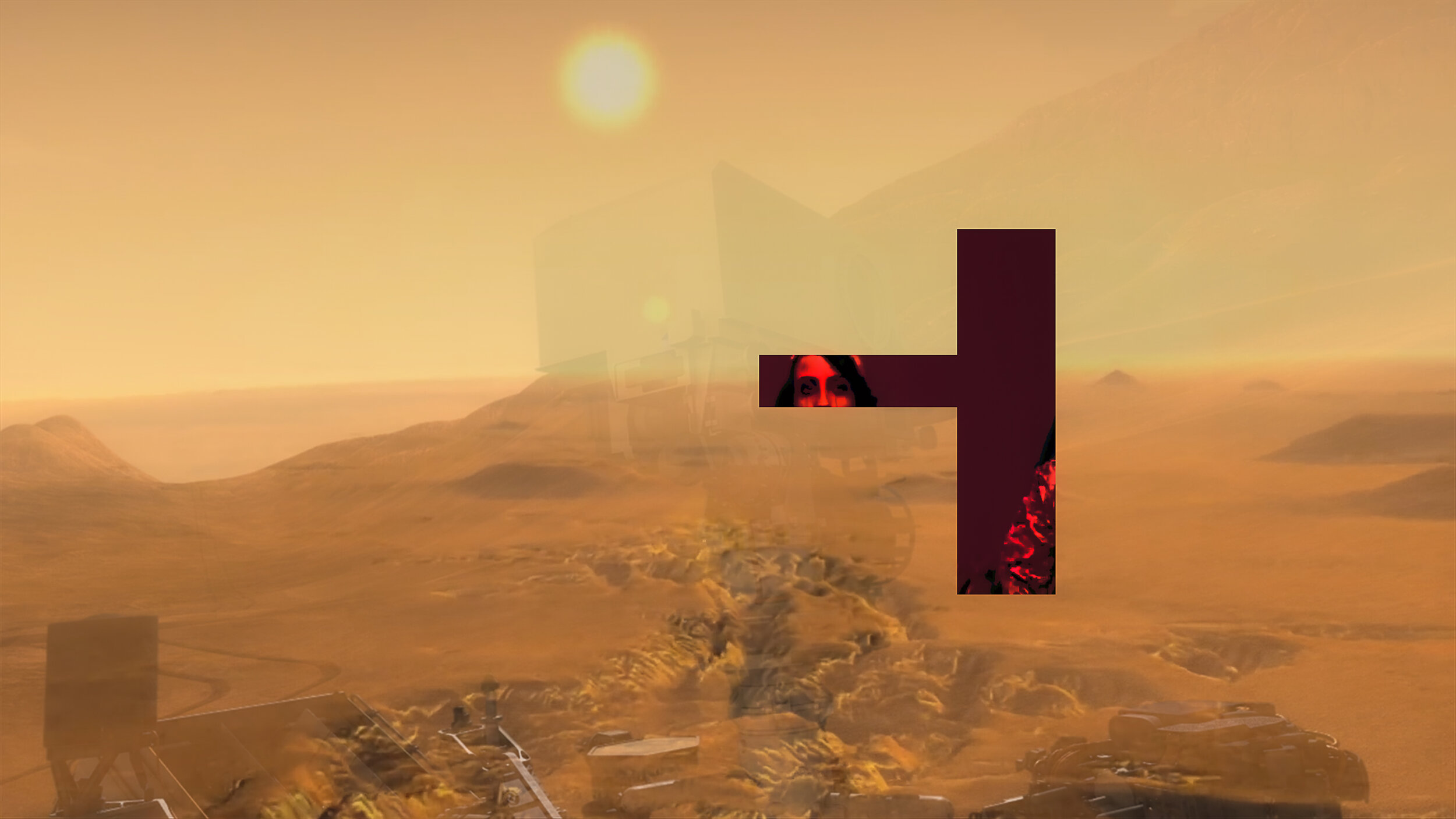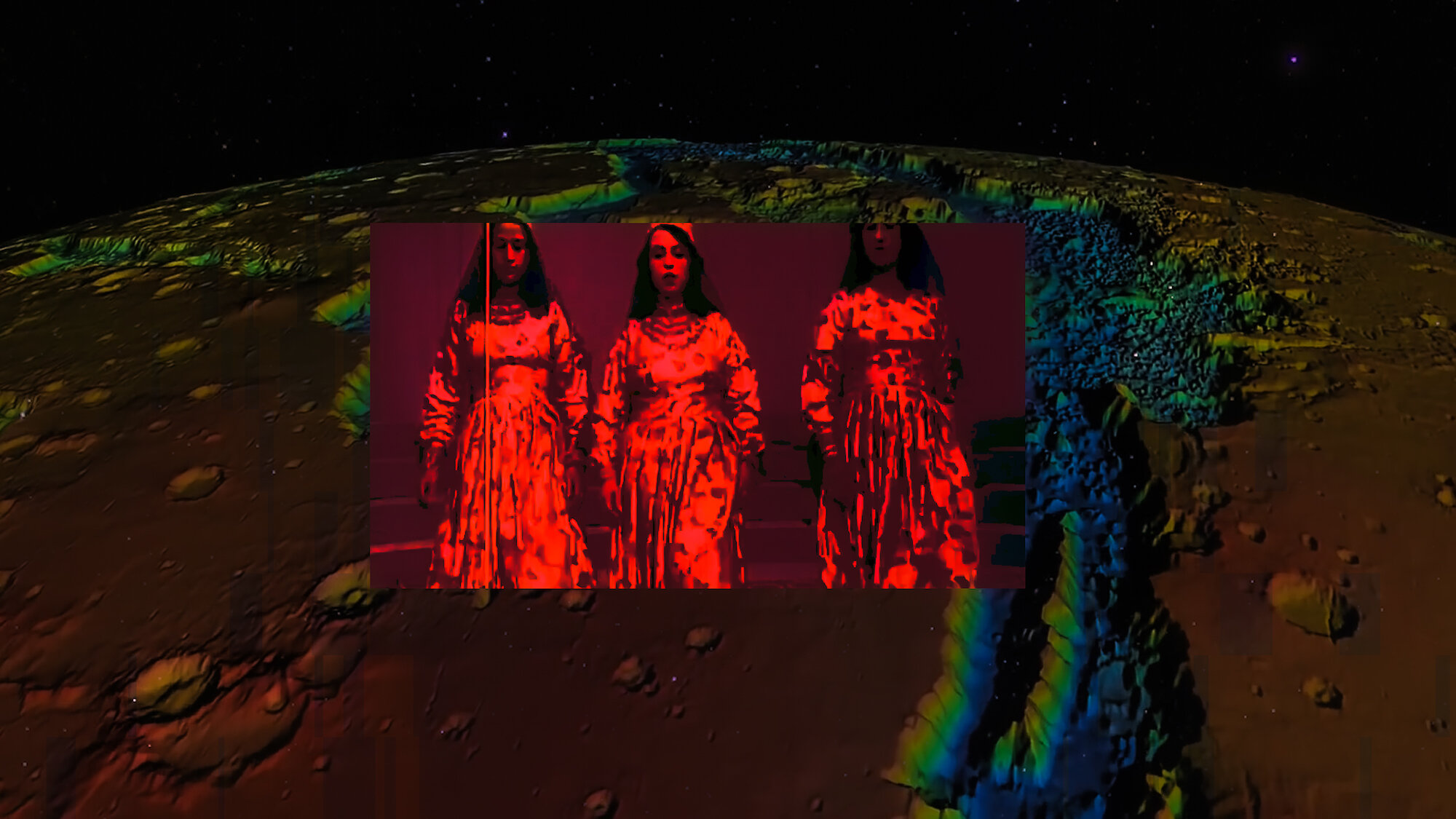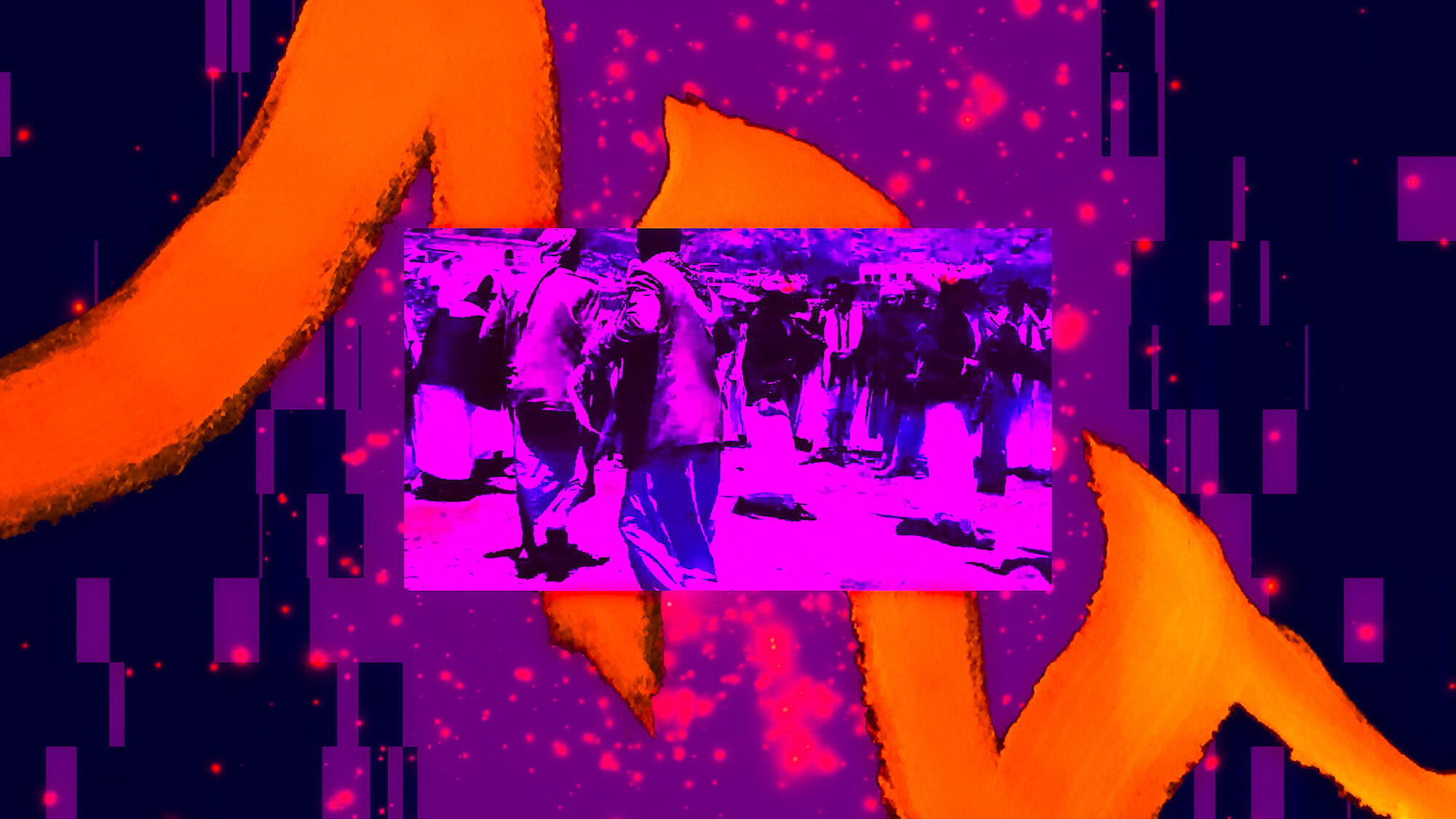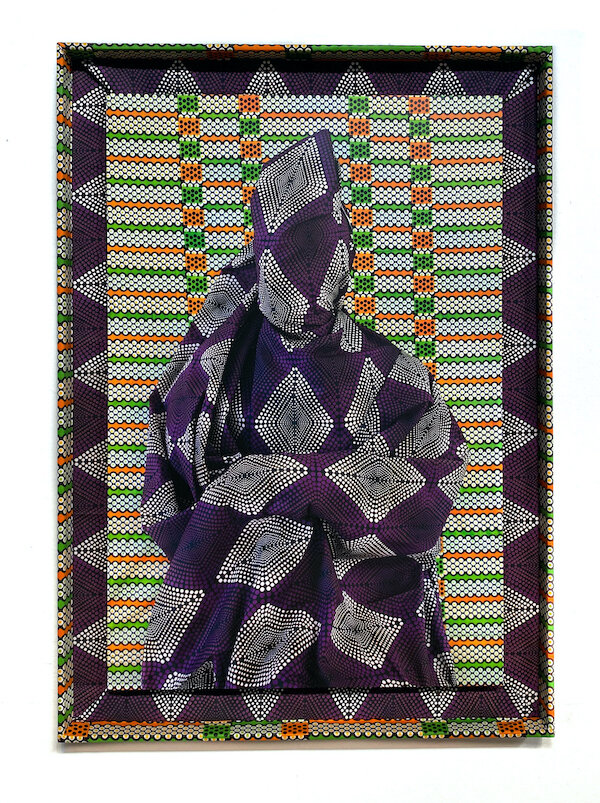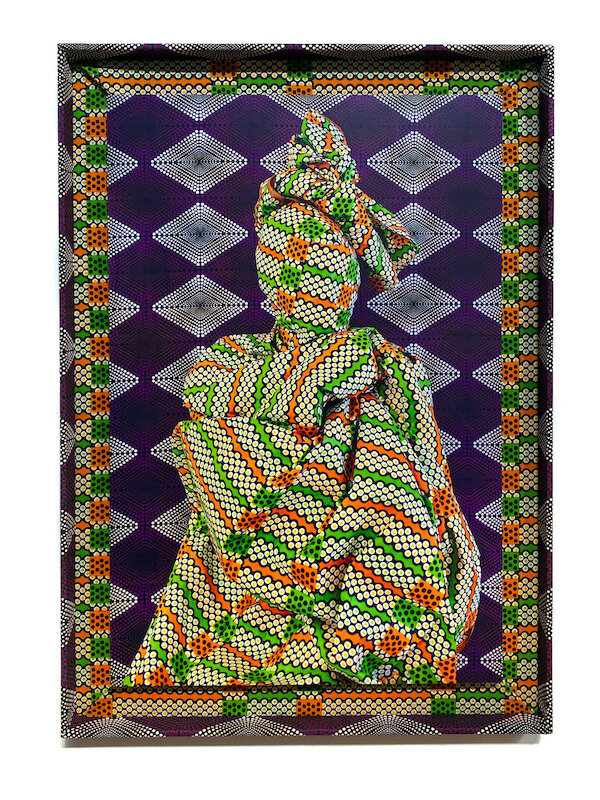AMoCA Collection | Stargazer, FLUX Series, pigment print with UV laminate mounted on aluminum Dibond, in wooden frame upholstered with wax print, 49 x 35 x 3 in, Edition 2, 2021
RAIR | 2020-21
ALIA ALI | LOS ANGELES & MARRAKECH
Alia Ali is a Yemeni-Bosnian-US multi-media artist. Having traveled to sixty-seven countries, lived in and between seven, and grown up among five languages, her most comfortable mode of communication is through photography, video, and installation. Her travels have led her to process the world through interactive experiences and the belief that the damage of translation and interpretation of written language has dis-served particular communities, resulting in the threat of their exclusion, rather than a means of understanding. Alia's work reflects on the politics of contested notions of linguistics, identity, borders, universality, colonization, mental/physical confinement, and the inherent dualism that exists in each of them.
Her work has been featured in the Financial Times, Le Monde, Vogue, and Hyperallergic. Alia has won numerous awards and has exhibited internationally at Galerie Peter Sillem in Frankfurt, Galerie Siniya 28 in Marrakech, Gulf Photo Plus in Dubai, PhotoLondon, 1:54 Contemporary African Art Fair, the Lianzhou Photo Festival in China, the Stedelijk Museum Schiedam in the Netherlands, the Katzen Museum of Art in Washington DC, the New Orleans Museum of Art, and the Benton Museum of Art at Pomona College. Alia also serves on the board of Clockshop in Los Angeles, California.
I come from two countries that no longer exist: Yugoslavia and South Yemen. My parents are migrant linguists, though speaking seven languages between them, they share only English. I grew up between Sana’a, Sarajevo, Istanbul, Michigan, and Indiana. Later I lived in Wales, Ho Chi Minh City, New Orleans, Los Angeles, and Marrakech. As a female artist who exists on the borders of identifying as West Asian, Eastern European, a United States citizen, and culturally Muslim yet spiritually independent, my work explores cultural binaries, challenges culturally sanctioned oppression, and confronts the dualistic barriers of conflicted notions of gender, politics, media, and citizenship. Creating work from my own multilingual lens has shown me how language can be a form of misinterpretation rather than a means for understanding. My work critiques linguistics and inherited political structures and narratives, while simultaneously attempting to counter the polarization and miscommunication that imperils communities across the world, encouraging viewers to confront their own prejudices.
Working between photography, video, and installation, I address the politicization of the body, histories of colonization, imperialism, sexism, and racism through projects that take pattern and textile as their primary motif. In my immersive installations I utilize light, pattern, and textile to move past language and offer an expansive, experiential understanding of self, culture, and nation. In my experimental video work and sound installations, I aim to reactivate historical and political archives of Yemen and Bosnia, using deep research to highlight untold narratives.
Textile has been a constant in my practice, and I have recently begun making my own patterns and prints. I believe that textile is significant to all of us. We are born into it, we sleep in it, we eat on it, we define ourselves by it, we shield ourselves with it, and eventually, we die in it. While it unites us, it also divides us physically and symbolically. In my work, textiles represent the fabricated barriers in society that can both segregate and connect us. What side of the fabric are we on? Can we exist on both sides at once? Ultimately, do we exclude others from the fear of being excluded ourselves? Is this exclusion a form of self preservation, motivated by primitive fears of social isolation and our search for security? Or does exclusion represent a metamorphosis of the outcast into the villain? What do we fear discovering beneath the cloth?
My work is also informed by discourses of criminality, Yemeni Futurism, and feminist theory, all of which are tools to unpack practices of refusal and rupture. I define Yemeni Futurism as new explorations of Yemeni selfhood that are free from limitations of travel bans, borders, colonialism, trauma, and imposed linear timeframes. I call upon Yemeni oral histories to conceptualize these narratives, while reflecting on contemporary circumstances in Yemen and its diaspora. Drawing on stories including the nostalgic past of Queen Belquis of Saba (also known as the Queen of Sheba), my work investigates dystopian realities of the present and radically imagined possibilities for the future.
http://alia-ali.com
Roswell Museum and Art Center
Rair exhibition • Alia Ali “Refracted Futures” • March 5 - April 16, 2021
REFRACTED FUTURES an exhibition by Alia Ali, curated by Aubrey Hobart
The title of this exhibition, Refracted Futures, is a linguistic intervention that pushes against the singularity of how we reference the future. Through the several bodies of works presented, the exhibition demonstrates the urgent necessity to shift our thinking towards multiplicity. BORDERLAND: The Miniatures (2018), FLUX (2019-2021), أصل // Source (2021) and مهجر // Mahjar (2020) are drawn together to present complex discourses surrounding notions of migration, borders, colonization, imperialism, capitalism, and feminist theory. These ideas become tools to unpack practices of refusal and rupture in order to refract restrictive linear timeframes and open a space from which multiple futures can and must exist simultaneously.
From the oasis to the desert, our utopia of terraced mountains, ancient architecture, jewelry, textile, frankincense, and myrrh has become a dystopia of explosions, famine, disease, and suffering. Our land was looted of our most precious artifacts, which bear witness to this cruelty that we have endured. They are imprisoned in museums and collections far away, and we must pay our colonizers and looters for the visas and entrance tickets to access the sites on which they are held captive. Like us, they are nomads, not by choice but rather by consequence. We have been robbed of our archive and our narrative is fragmented. Our creations and gifts have been exchanged for the “rocket’s red glare” and “bombs bursting in air,” while our cities are backdrops for military training games, and our oil builds “the golden doors” from which we are banned.- Alia Ali
For best viewing quality, click on “Watch on YouTube”, expand to full screen.


